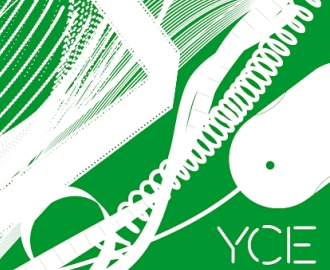Nurturing the Creative and Cultural Economy
News details
NURTURING THE CREATIVE AND CULTURAL ECONOMY
Countries: Syria, Lebanon, Palestine, Egypt, UAE, Saudi Arabia, Qatar, Bahrain
Project initiated in: 2005
Presented by: British Council
Partners: Ford Foundation, Al Mawred Al Thaqafy, GAIA Heritage, American University of Beirut, Bader, CISCO, Syrian Opera House, Rawafed / Syria Trust, German Agency for Technical Cooperation, Sharjah Museums Department, Abu Dhabi Department for Culture and Heritage, Dubai Community Theatre and Arts Centre, SAGIA (Saudi Arabia), National Museum of Riyadh.
Project budget: EUR 500 000
- Back to the Projects Overview page -
// Context:
“Nurturing the Creative and Cultural Economy” was designed in response to the early recognition of the enormous economic and social development potential of the cultural and creative sectors in the Middle and Near East.
UNCTAD statistics (2008, 2010) reveal these sectors account for a significant and increasing contribution to the global economy: 3.4% of global trade, and an average annual growth rate of 8.7%. In order to nurture and harness these opportunities, it became clear that there was a strong need to develop the institutional infrastructure of these sectors in the developing world, nurture individual leaders and strengthen links with the international markets.
Together with a strong consortium of European and regional partners, we developed a programme, using high profile cultural policy seminars (Lebanon: 2005, 2006, 2010; Syria: 2010) mapping exercises (Lebanon 2005-6) and publication and dissemination of practical guides on policy-making and mapping across the Middle East.
// Project Objectives
The objectives of the programme were to:
1. Provide focused support for the development of effective policy-making in key countries in the region by promoting for the development of a sustainable and competitive creative economy. while taking account of the context in which the creative economy is developing (government, intellectual property rules, tax regimes, education policies). Mapping exercises of various government interventions (from Intellectual Property regulations to tax regimes and education policies) help understand the economic behaviour and needs of these sectors and in turn help to inform and shape public interventions.
2. Develop essential business and technical skills for the creative sector – delivery of training programmes for cultural managers and entrepreneurs in business and marketing, audience development, etc.
3. Identify and promote entrepreneurial talent in the creative and cultural sector. By bridging the gap between artists and consumers, entrepreneurs drive forward the economic and cultural development of societies. Through the Young Creative Entrepreneur programme we seek to raise their profile, celebrate their achievements, and recognise their importance within the creative economy.
4. Identify young emerging cultural entrepreneurs and support them to develop ideas, skills and networks to drive the sector onwards (award of professional development grants to undertake courses and placements in European organisations etc.).
// Action and Impact
- Increased awareness and support for this agenda from intermediary agencies, universities and cultural practitioners in the region
- Creation of a new central organisation and two new incubators for creative industries in Lebanon.
- Online resources attract over 5 000 users.
- Development of networks of young creative entrepreneurs that recognise themselves as being part of a growing economic sector + strong links with Europe/UK peers.
- 1000 participants in Young Creative Entrepreneur Scheme, including 50 entrepreneurs participating in tailor-made development and training programmes.
- 100 participants in Cultural leadership International programme and 30 finalists awarded grants to implement an international personal development plan.
- Connecting 50 European/UK leading cultural organisations with 30 organisations from the Middle and Near East.


Log in with your EU Login account to post or comment on the platform.